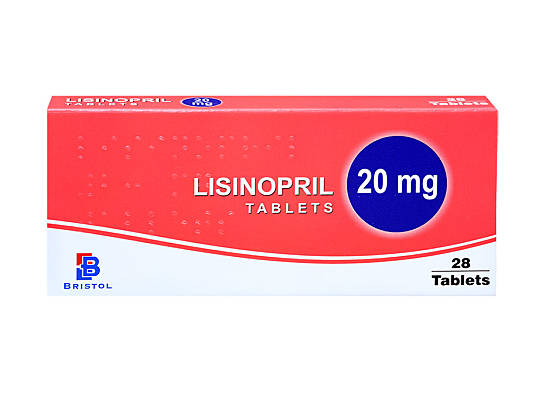What Causes Low Blood Pressure?

Medically reviewed by
Dr Kathryn BasfordLast reviewed: 10 Jun 2019
Low blood pressure is anything below 90/60mmHg. It can have quite a few different causes

Key takeaways
Hypotension is another name for low pressure - having blood pressure lower than normal (120/80mmHg)
Your blood pressure naturally drops at various times, but lower blood pressure over a long time can be caused by underlying health conditions
Low blood pressure can also be caused by some medications or as a natural result of getting older
Low blood pressure is usually not dangerous but it can be serious if it's causing symptoms like fainting, dizziness, or tiredness
The causes of low blood pressure span from heart conditions and dehydration to a lack of vitamins and anaemia.
Low blood pressure is often temporary and treatable, provided that you consult a doctor to find out the causes. A lot of the time, low blood pressure does not really pose a problem. It’s only when your blood pressure gets dangerously low that it becomes a threat to your health. You should therefore watch out for signs such as light-headedness, dizziness or fainting.
What is low blood pressure?
A normal blood pressure is around 120/80mmHg (120 over 80). You have low blood pressure (also known as hypotension) if your blood pressure drops below 90/60mmHg (90 over 60).
Low blood pressure means that the blood flow in the body might be insufficient to bring enough oxygen and nutrients to your organs. When blood pressure is extremely low, people can eventually lose consciousness.
People who suffer from low blood pressure often experience problems when they get up from a lying or sitting position and feel lightheaded (orthostatic hypotension). In severe cases of low blood pressure, patients can suffer from shock and even stroke.
Low blood pressure does not necessarily pose a threat to your health. Some people with blood pressure below 90/60mmHg lead perfectly normal lives. It is the presence of symptoms that determines whether your low blood pressure is problematic or not.
Causes of low blood pressure
There are a whole range of factors that can temporarily contribute to low blood pressure such as stress, age, temperature, time of the day (e.g. evening) and time since the last meal. Also, staying in bed for a very long time causes a temporary drop in blood pressure.
These factors do not cause a huge drop in blood pressure but can explain why we feel dizzy or sleepy in certain situations (for example when getting out of bed).
These medical conditions can cause low blood pressure:
- Pregnancy, especially during the first six months
- Heart disease (e.g. a slow heart rate known as bradycardia) that lowers blood pressure – for example, after a heart attack
- Endocrine disorder, i.e. hormonal disease due to a gland problem (e.g. thyroid or kidneys); in some cases, diabetes can cause low blood pressure too
- Dehydration, which is often caused by vomiting, diarrhoea, fever and heat. Mild dehydration may cause you to feel dizzy or even faint. If prolonged, this can lead to shock and other serious conditions
- Blood loss, due to an injury, internal bleeding or severe dehydration (less water in the blood) that results in a decrease in the amount of blood circulating in your body
- Septic shock, when a bacterial infection reaches the bloodstream from an infected organ
- Severe allergic reaction (breathing problems, hives, itching, swollen throat), usually resulting from certain foods, venomous insect sting or penicillin. This can cause a dangerous sudden drop in blood pressure
- Lack of essential vitamins in your diet will cause anaemia (not enough red blood cells) which causes low blood pressure.
As you can see, the potential causes of low blood pressure are a long list of unrelated conditions, (as opposed to the causes of high blood pressure which can involve a combination of lifestyle factors, family background and underlying conditions).

No results found.
Please check your spelling or try another treatment name.
Medications can cause low blood pressure
Medications for high blood pressure as well as for the heart and depression can cause low blood pressure. These include beta-blockers, alpha-blockers, calcium channel blockers along with tricyclic antidepressants.
In particular, if you take Viagra with a specific heart medication (nitroglycerine), this can cause a sudden drop in blood pressure.
You should also pay attention to water pills (diuretics) which make you urinate more frequently. They lower your blood pressure by reducing the amount of water in your body.
Causes of low blood pressure in the elderly
It is common that as people grow older, the natural mechanisms for controlling the blood pressure via the heart rate (known as baroreflex mechanisms) become less effective.
This can lead to a decrease in blood pressure, particularly when elderly people stand up or get up after a long time in bed (this can affect patients of all ages).
Is hypotension dangerous?
Hypotension (low blood pressure) is generally not a problem for your health. In fact, it provides protection against heart and kidney diseases as well as conditions related to high blood pressure such as heart attacks and strokes.
Low blood pressure is fine as long as it is not so low that you experience symptoms, in which case there may be a risk of damage to your organs.
People who have so-called poor circulation symptoms (e.g. cold fingers and toes) often have low blood pressure. However, these “poor circulation symptoms” are very common and you don't need to worry about them.
You should consult a doctor if you suffer from dizziness, fainting, serious dehydration (thirst) and excessively pale skin or fatigue.

Dr Kathryn Basford is a qualified GP who works as a GP in London, as well as with ZAVA. She graduated from the University of Manchester and completed her GP training through Whipps Cross Hospital in London.
Meet our doctorsLast reviewed: 10 Jun 2019
-
Low blood pressure (hypotension), National Health Service [accessed February 2023]
-
Hypotension, Patient [accessed February 2023]
-
Low blood pressure, British Heart Foundation [accessed February 2023]
-
Low blood pressure (hypotension), Mayo Foundation for Medical Education and Research (MFMER) [accessed February 2023]
-
Low Blood Pressure, National Heart, Lung, and Blood Institute (NHLBI) [accessed February 2023]
In order to avoid related health risks, your blood pressure needs to be kept within the normal range. Because of this, you shouldn’t miss doses of your blood pressure treatment if possible. You reorder your treatment quickly and conveniently from ZAVA, to avoid running out.












